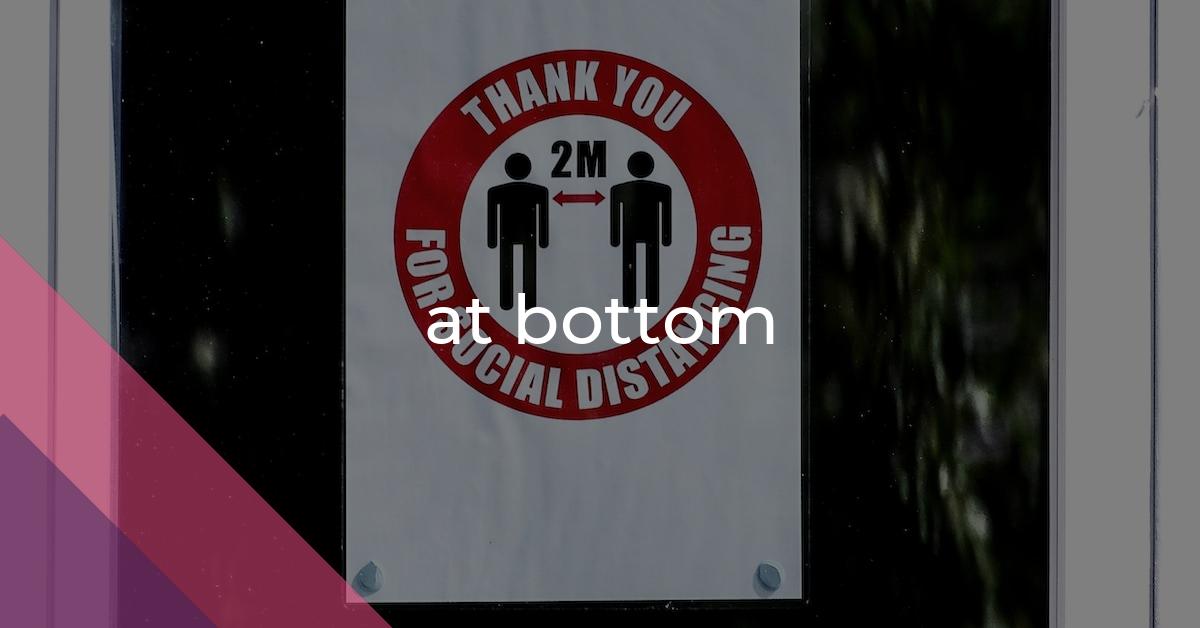at bottom: Idiom Meaning and Origin
What does ‘at bottom’ mean?
At bottom, the idiom means fundamentally or ultimately.

Idiom Explorer
The idiom "rock bottom" refers to the lowest possible point or level of something. It is often used to describe a situation or a person's life when they have hit a point of extreme difficulty or failure.
An idiom that means the final or last gathering or collection of something or someone, often used to express the end or conclusion of a particular event, activity, or period of time.
The idiom "in the final analysis" means that something is being considered or judged after all the facts or information have been examined and taken into account.
The idiom "heart of hearts" refers to one's deepest and truest emotions or beliefs.
The idiom "get to the bottom of" means to investigate or find out the underlying or true cause of something, often by thorough examination or questioning.
The idiom "get down to business" means to focus on the task or purpose at hand, and to start doing what needs to be done without wasting time.
The idiom "get down to bedrock" means to reach the fundamental or essential aspects of something, stripping away all unnecessary layers or details.
The idiom "for good" means permanently or forever. It is used to indicate that something has come to an end and will not be repeated or resumed in the future.
Hidden Depths.
The idiom "at bottom" is commonly used in English and has its roots in Middle English. It is used to convey the fundamental or underlying truth or reality of a situation or matter. The phrase can be traced back to the 14th century, and its meaning has remained consistent throughout its usage.
The term "at bottom" is derived from the Middle English word "botme," which means the lowest part or base. This sense of depth and foundation is reflected in the idiom's usage to describe the essential nature or core of something.
When someone uses the idiom "at bottom," they are emphasizing that they are revealing the true essence or essential nature of a subject or issue. The phrase suggests that there may be more to the situation than what is initially apparent, and it encourages the listener or reader to dig deeper to understand the underlying truth.
The idiom "bottom line" is related to "at bottom" as it also emphasizes the essential truth or key point of a matter. The term "bottom line" originated in the business world, where it referred to the final figure or result at the end of a financial statement. Over time, it has had a broader application and is now used to convey the most important or decisive aspect of any situation or argument.
The idiom "get to the bottom of" is another related phrase that conveys the act of uncovering or discovering the underlying truth or cause of a problem or situation. It suggests that there is more to a matter than what is initially apparent and encourages thorough investigation or analysis to uncover the truth.
The idiom "deep down" is also connected to "at bottom" as it expresses the idea of discovering the true or hidden nature of someone or something. It implies that there is a deeper, more authentic self or essence that may not be readily apparent on the surface.
Similarly, the idiom "get down to bedrock" is related to "at bottom" as it signifies the act of reaching the most fundamental or basic level of something. It implies stripping away all superficial layers to expose the core or essence of a subject or issue.
The idiom "come down to" is also related to "at bottom" as it suggests that the ultimate or underlying truth or cause of a matter can be simplified or summarized as a single factor or aspect. It implies that when all other factors are considered, the essential truth or essence of a situation can be distilled down to a single element.
The idiom "at bottom" often appears in written or formal conversations, where a more nuanced or profound understanding of a matter is desired. It is frequently used in essays, articles, and academic discourse to explore the underlying causes or principles of a specific topic.
While the idiom does not have any alternative forms, it can be used in various contexts. For example, a writer might say, "At bottom, his actions were motivated by fear," or "The problem lies at bottom in a lack of communication."
It is important to note that "at bottom" is an idiomatic expression, and its literal meaning may not align with its idiomatic usage. The phrase should not be taken literally to imply the spatial or physical location of something. Instead, it is a rhetorical device used to emphasize the inherent truth or essence of a subject.
The idiom "at bottom" is a widely used expression that signifies the fundamental or underlying truth of a matter. Its historical origins can be traced back to Middle English, and its meaning has remained consistent over the centuries. By invoking this idiom, speakers and writers emphasize the need to delve deeper and explore the core principles or causes behind a specific subject. The idiom adds depth and complexity to the language, encouraging critical thinking and a comprehensive understanding of the matter at hand.
Example usage
Examples of how the idiom *at bottom* can be used in a sentence:
- At bottom, he was just looking for attention.
- She seemed calm, but at bottom, she was terrified.
- The issue, at bottom, is the lack of communication.
More "Origin" idioms



